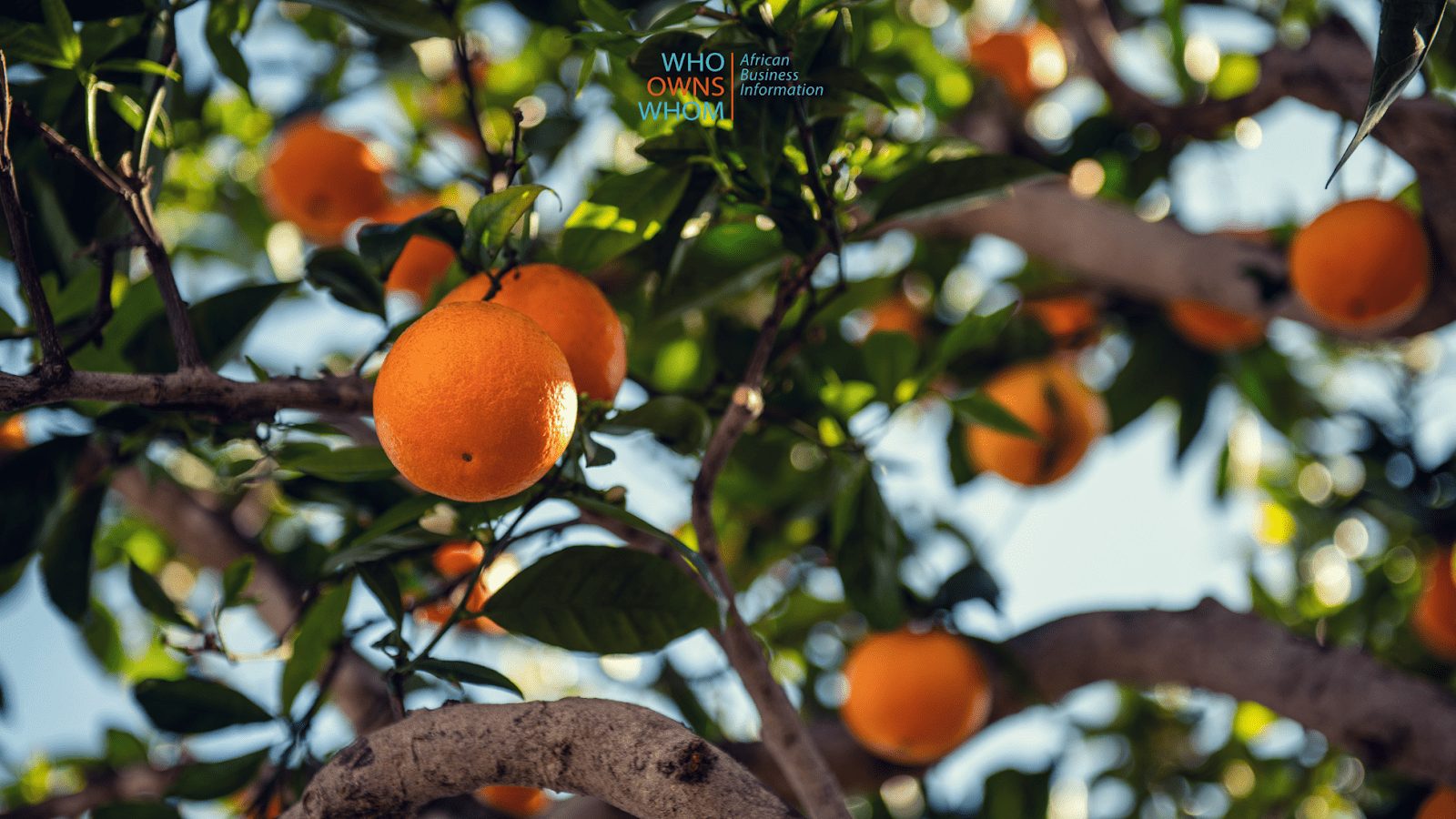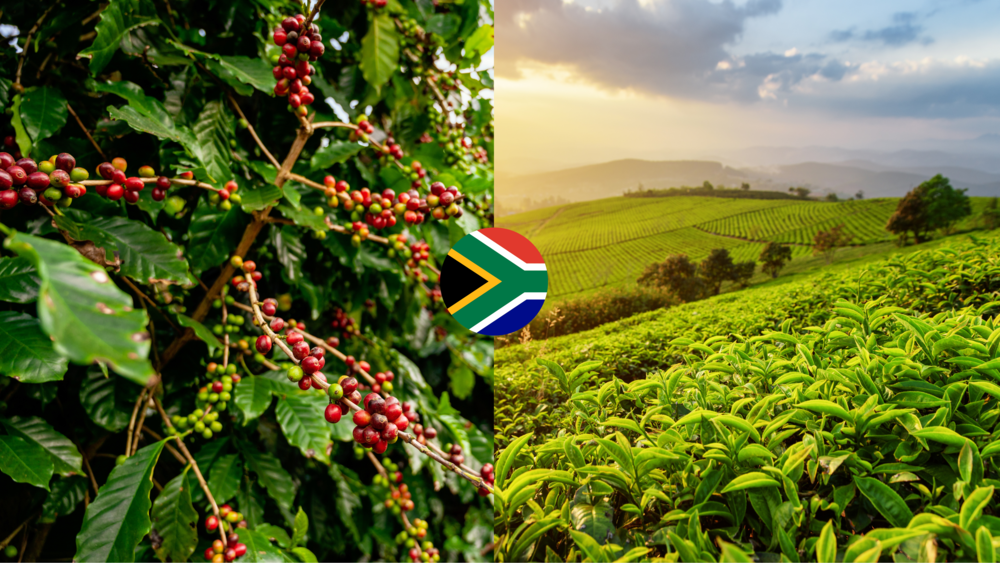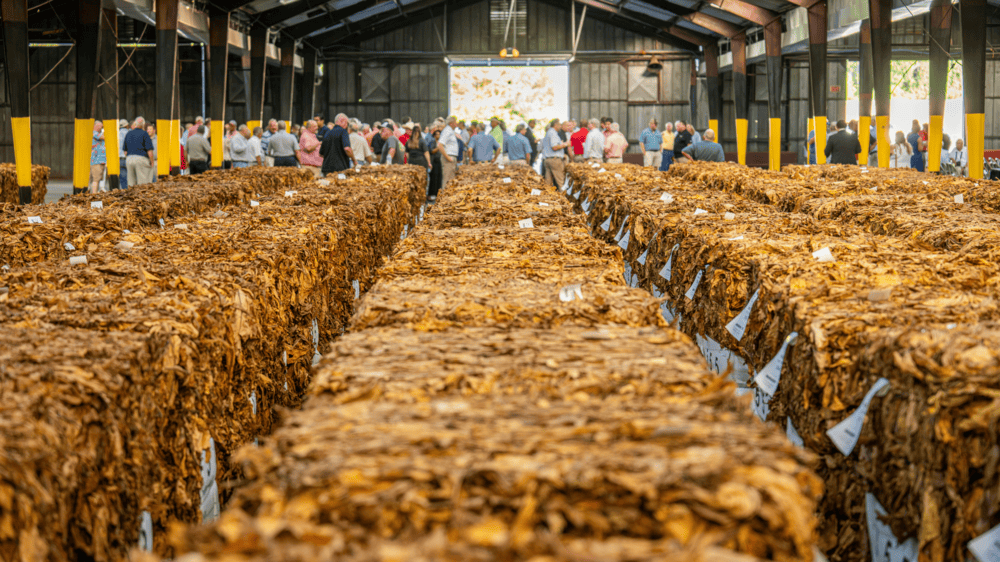The Agribusiness Sector in South Africa
The South African agribusiness sector is a backbone of the economy, driving growth and providing food security and employment.
Who Owns Whom’s report on the agricultural sector in South Africa reported that the sector grew by 17.2% in the fourth quarter of 2024, saving the country from a technical recession. The GDP was 0.6% in the 4th quarter, which was higher than the third quarter when it shrank by 0.1%.
That illustrates the importance of agriculture to the economy. It is equally important for food security and people’s livelihoods.
Land is an inseparable aspect of any discussion on agriculture. This blog was written as the US halted USAID funding to South Africa, citing land grabs as the reason for the decision.
Competitive advantage of South African agriculture
South Africa has a more modern and diverse agricultural economy than other African countries. Its resilience will be helpful as many factors are impacting the South African agricultural industry – including lack of progress with land reform, the volatile exchange rate, electricity supply shortages and ongoing climate change concerns.
Who Owns Whom’s report indicates that the country’s advanced infrastructure and technological adoption enable it to compete effectively on the continent.
The state of agribusiness in South Africa
The farming industry’s gross revenue reached R452bn in 2023/24, up 1.4%, despite an overall 5% decline in farming production.
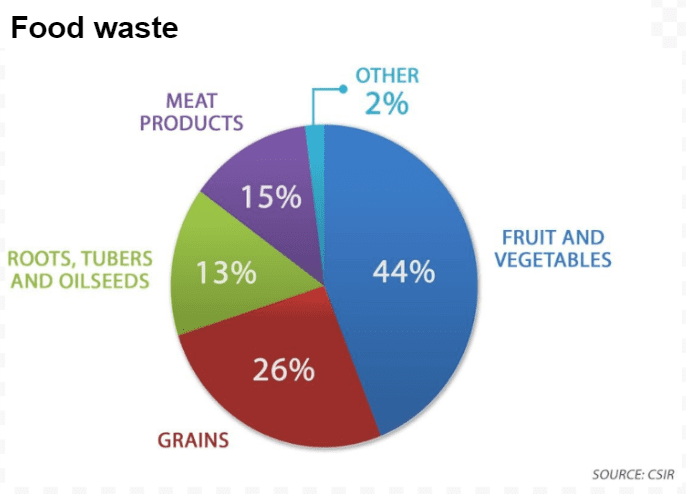
Due to the stagnating and poorly managed economy, the country faces several challenges. The one that most contributes to food insecurity is inadequate infrastructure, particularly in rural areas, making it difficult to deliver fresh produce on time to vulnerable communities.
The agriculture sector supports millions of livelihoods and significantly contributes to national exports. However, despite its importance, the sector does not adequately feed all South Africans, and food waste is the biggest contributor to food insecurity.
Challenges and industry pain points
Government has introduced several initiatives aimed at transforming the sector. Some had unintended consequences, such as the Micro-Agricultural Financial Institutions of South Africa (MAFISA) to expand production funding to small farmers, particularly in communal land areas and on smallholdings with a variety of tenure systems.
Intermediaries used MAFISA loans to finance production on communal or smallholder land by paying contractors for production. In effect, MAFISA funds were used to rent land, and the objective of empowering emerging farmers and growing their capacity to engage in the agricultural sector was not achieved.
Opportunities and future growth
With the global challenges associated with climate change, it is important for the industry to adopt new farming methods. The graph shows that horticulture is continuing to grow, indicating that South African farmers are already utilising techniques such as organic farming, permaculture, and agroforestry, which improve soil health, reduce water usage, and minimise the need for chemical inputs. These practices contribute to more resilient agricultural systems that can better withstand climate change impacts.
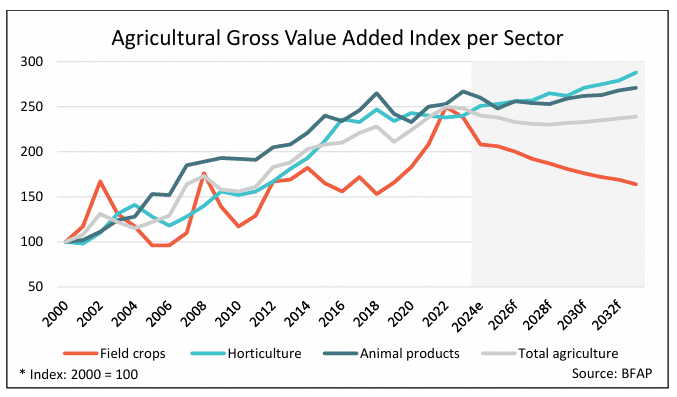
The government should play its role by improving infrastructure such as roads, rail, and ports to ensure the timely delivery of produce to key locations, avoiding wastage. Small farmers play a key role in addressing food insecurity, which calls for technical assistance and training in sustainable methods to improve resilience.
The call for land by communities is sometimes misunderstood and usually assumed to be for farming, while it is a combination of residential, subsistence and mainstream agriculture. For as long as the issue of land ownership and its use for livelihood is not adequately addressed, the majority of South Africans will remain on the periphery of economic activity.
Deregulation and removing government red tape can go a long way towards incentivising the private sector to invest in the sector and in turn, create much-needed employment, increase productivity and minimise dependence on exports.
Contact us to access WOW's quality research on African industries and business
Contact UsRelated Articles
BlogCountries Agriculture forestry and fishingSouth Africa
Preserving and Processing of Fruit and Vegetables in South Africa
Contents [hide] Agricultural production is an inherently seasonal activity globally and in South Africa. This poses a challenge for the agro-processing and manufacturing industries, which often struggle to maintain consistent...
BlogCountries Agriculture forestry and fishingSouth Africa
South Africa’s Tea & Coffee Market 2025: Price Shocks, Café Boom & Export Wins
Contents [hide] Anyone who remembers the competition between Betamax and VHS will know that VHS won the day, not because it had better technology. The same phenomenon is evident in...
BlogCountries Agriculture forestry and fishingMozambique
Tobacco industry in Mozambique – Strategies to revitalise Mozambique’s declining tobacco industry
Contents [hide] The global tobacco market is a double-edged sword. On the one hand, international regulations and health campaigns are intensifying, advocating for healthier lifestyles and discouraging people from using...

